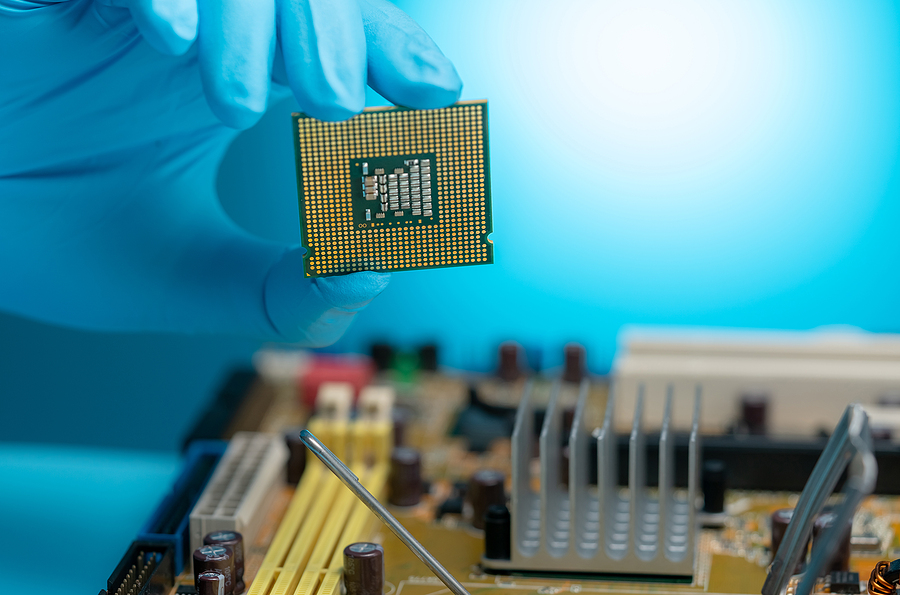
A Dip in Electronic Component Demand
Iron Mountain’s asset life cycle business faced a distinctive hurdle during the first quarter. The firm processed a greater number of used electronics, but did not generate additional revenue due to a reduction in demand for electronic components.
In its Q1 financial report, which was released recently, the publicly traded data management corporation articulated the performance of its Asset Lifecycle Management Segment. This comprises ITAD and data center decommissioning services.
The document outlined that electronic component price drops had a negative impact on this sector; however, the company was still able to increase its client base during this time.
In January of 2022, the ALM segment of the business underwent a significant expansion with the acquisition of ITRenew, mainly because of the inclusion of its hyperscale data center decommissioning arm. This greatly strengthened the company’s portfolio by adding two additional verticals: traditional ITAD services for corporate clients, and electronic processing services for technology manufacturers.
Current Market Conditions
During an investor conference call held on May 4th, William Meaney, president, and CEO of Iron Mountain, discussed the current market conditions in the hyperscale decommissioning sector, formerly known as ITRenew.
“Our volumes grew in excess of 30% in this vertical year-over-year, reflecting our market-leading platform, the strength of our existing customer relationships and our ability to win more new logos,” Meaney stated. “Revenue is down, however, reflecting the record-low pricing the market has seen since the end of 2022 on both new and used components.”
Notably, the cost of specific electronic parts had dropped by 70% when compared to last year.
“So whilst we still have positive gross margins on that business, the revenue is heavily impacted by what we’ve been seeing across the semiconductor industry in terms of record-low pricing,” he said.
In his recent report on Iron Mountain’s financial status and performance for this year’s first quarter, CFO, Barry Hytinen, shared that the ALM department brought in revenues totaling $41 million.
But this amount represented a decline of approximately 27 percent from the previous quarter, and staggeringly 41 percent less than what was earned during the same time frame last year. Despite these numbers reflecting adverse circumstances across industries globally, largely due to COVID-19 impacts, prices for electronic items had an unexpected increase initially. This occurred until reaching a “peak” at $83 million in Q2 of 2022.
Ultimately, Iron Mountain projects a decline in year-over-year performance for the second quarter of 2023.
Improved Financial Results Projected
Executives forecast that company financial results will improve later in 2023, from a multitude of factors.
Towards the end of February, Hytinen and Meaney disclosed that pricing for electronic components had started to level out. “Importantly, we are now seeing pricing for components stabilizing,” Hytinen stated.
Iron Mountain has also expressed its optimism regarding the stabilization of memory and CPU prices, citing several companies’ decisions to reduce capacity in the market as a contributing aspect.
Hytinen stated that Iron Mountain anticipates the second half of the calendar year to exemplify improved performance in its ALM business. Further commenting that it appears that Q3 revenue will match last year’s numbers, attributable to an impressive pipeline of new ALM bookings.
“In particular, our OEM business is developing well with the team growing our pipeline and delivering key new wins,” he said. “For example, we recently signed a deal with one of the largest technology end-user device manufacturers to partner with them in the decommissioning needs of their customers.”
A Goal of Market Expansion
Iron Mountain is strategically pursuing market expansion with the goal of securing a larger portion of the share.
“We really like the space. It’s very fragmented, and we think we’re in a very good position to take a tremendous amount of share over time,” Hytinen said. “We’re working through what everyone in the industry is working through right now, which is pretty low component pricing. We feel good about the opportunity.”
As time passes, Iron Mountain remains hopeful that company projections continue to show an upward trend.
